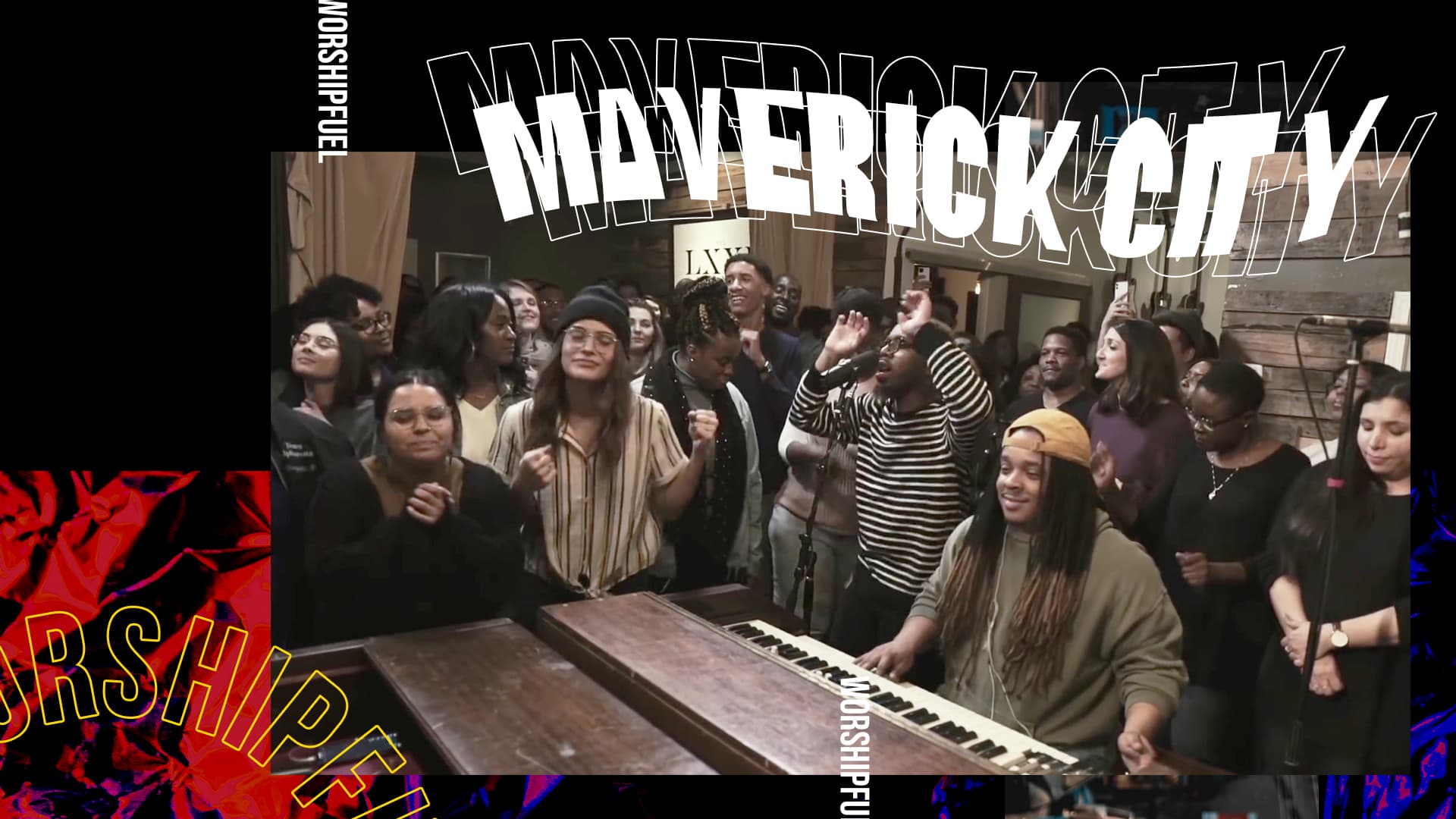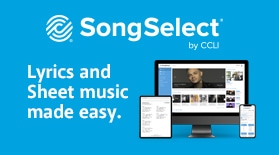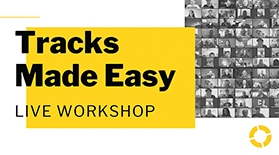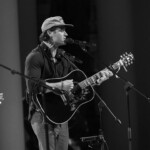Songwriting
Breaking Down Walls by Stepping Outside the Lines
How Maverick City Music is melding different genres and different people to venture past the boundaries of traditional Contemporary Christian music

Maverick City Music is a community of song-writing worshippers with a sound that is uniquely their own. This diverse group is breaking down walls and blurring boundaries to create a safe space for all, especially during these times of unrest. We had the opportunity to talk with Chandler Moore of Maverick City via Zoom from his home church in Atlanta, GA.
At just 25 years old, Chandler doesn’t claim to “have that much wisdom,” but in the time we spent with him, it was pretty apparent that his wisdom is surpassed only by his passion for affecting generations through Maverick City’s music.
Unorthodox, free spirit, rule breaker, one that breaks away from the herd. This is how your website defines Maverick. In your own words, how would you describe Maverick City Music?
Maverick City is a place for those who may not have had a chance, or who the industry might not have noticed, or whose gifts may have been too unmanicured for the industry.
We open the door for those types of people. I’m definitely one of them. Mav City provided a space to just be. I knew what I wanted as an artist – and that what God gave me was special, but I hadn’t seen a protected safe space to guide and guard what God had given me. I just didn’t want to sell it to the highest bidder.
Maverick City is that space, it’s a protected space solely built off of honestly, what feels good and where God is leading us. If something isn’t authentic, we stray away from it but if it feels best, if it feels like God’s hand is on it, we lean into that.
For a shorter answer, I would say it’s a place for the unmanicured. Just a place for those people that have a raw gift and maybe need a little bit of shaping but a place where you can just be who God has called you to be.
Something Maverick City aims to accomplish is to “break the unspoken rules that exist in the CCM and Gospel World, but more importantly to be a megaphone for a community of creatives that have been pushed to the margins of the industry of Church Music.” That’s a pretty profound statement. Can you expand on this mission?
I think it can go unspoken, so I’m just going to throw it up into the room. There is a part of the industry, especially Christian music, and Gospel music, that is completely competition-based, completely rank based – but what we need to realize is the industry is manmade; God didn’t create the music industry. It’s built, of course, to help people, but it’s also built for personal gain. With that thought and that idea in mind, there are people that are gifted but may not ever get the stage because of one man’s agenda or an industry agenda for that season. And it might rightfully not be their time, of course, but God creates opportunity and space.
We have to acknowledge the industry of selfishness and the whole “you give, and I give” concept. And while it may be business-wise appropriate, it may not always be God’s best. I think the interesting thing about Maverick is that we give without expecting anything back. Just for a fact, no one is contractually obligated to do anything for Maverick City.
One thing that Mav City has done that we honor God by giving relationships wholeheartedly. If it’s authentic we’re going to make it happen. I’ve met so many people – Steffany Gretzinger who is now a mentor of mine through this platform and those authentic connections.
I can honestly say it would have taken me years down the road to meet someone of Steffany’s caliber. But because Tony Brown who helped start Maverick City took it upon himself to introduce us – that is the heart behind Maverick City. We’re a community of people who are relational. Which is a big thing the industry is missing out on and lacking. The foundation of relationships. Can we just get to know each other? Beyond what we can do for each other? You may have the biggest song right now or serve at the biggest church put that to the side.
We are a space that is breaking the lines and breaking walls down for people who have been pushed aside through one man’s agenda, we have one agenda – to affect the world through what God has given us.
So, when Maverick City first got together did you set out to create a diverse community? Was it intentional to create this safe space inclusive of all types of people and believers? Or did it just flow naturally?
No man, it was not intentional at all. So, the way it played out was we went out to Redding to hang out and write with some of Bethel’s artists. It was just to meet, again no agenda, just to get some people together to write who might not have had that chance otherwise.
We took four or five songs we wrote that weekend, and just demoed them. We planned to shop them out, brought video in, and then it turned into – “hey, we might release this”. That stripped-down acoustic vibe came from what was just supposed to be demos.
Maverick City Volume 1 was literally done down in a river house in Redding with about 15-20 people. Even Jay Thomas was just hanging out, he led at Bethel. To us, it was just was random, but I believe it was the hand of God orchestrating something that we didn’t know, or the earth didn’t know that we needed.
It was never “we’re gonna release this album first and this one next.” Till this day we’re just still feeling our way through. We have a creative team, core team that meets every Monday but there is no three-month or five-month plan. We are just riding off the spontaneity of God. Not to say that people who plan are less Godly – I just think the way God formed Maverick and the way that we can affect a generation just speaks to the grace He has given us to just respond in the moment and do what he wants us to do in that time.
Speaking of the music – you said you “just went for it”, Maverick City’s music doesn’t seem to fit the mold of any one genre. In listening to “Man of Your Word” you hear Gospel, Funk, Caribbean, R&B… Where do you draw your musical influences from?
That flow came to me at a Housefires gathering. The special thing about Mav is that each song has a different amount of input from people of all different backgrounds. So, who wrote “Man of Your Word” was me, another black guy JJ who plays keys and is an amazing writer, a guy from Ireland who had a completely different background, and Tony Brown one of the writers of “Good, Good Father”. But I think the thing that Mav does consistently, that makes our music stick out a little bit is that we’re not afraid of difference. We’re not afraid of having different types of people in the background and seeing what happens when we merge people together.
I think that bounce, that funk, that Caribbean stuff, a little hip-hop maybe comes from me, I kinda came up with that sound to change it up because Maverick gives room for that. I didn’t know how it was going to work but we’re going to get in a room with our people and just ride it out and it came out pretty cool.
The different genres, different feels, all come from different people and that community of difference.
That’s really awesome. You’ve said before that the industry can try to put artists in a certain “box”. How does Maverick City manage to stay authentic despite outside pressures?
I’m only 25 so I don’t claim to have that much wisdom. I think one big reason the industry does that is, the truth is, people listen to what they love, people have a preference and people usually prefer what they look like.
So, if I see myself in a thing, I’m easier to listen to. I think in certain worship cultures, certain industries, certain groups they put on their platform who their audience is. I think now the church is in a wave where we are trying to be more proactive, we’re putting on stage who we want our audience to be. Before we just put on stage who we saw in the crowd, I think we’re being better about being proactive about putting people on stage that we want to see in our audience.
Certain worship cultures put on stage who their audience is. For years we just put on stage who we saw in the crowd. Certain worship cultures, industries, groups – put who their audience is up on stage. So, if you’ve got an all-white audience who only listens to country, we’re going stick to that and we’re not going to go beyond that, we’re not going to take the risk to introduce something new. If we have an entire black audience, who is very Pentecostal (he makes note that he grew up Pentecostal), very churchy, we’re not going to put a Chandler Moore with a guitar on stage to lead worship.
We’re gonna stick to what we know, what we feel comfortable with, what brings the people, what brings the money. What we love. The industry has been built around that idea “we know this, we’re gonna stick to what we do well.”
But…the danger in it is even with pure intentions you can put off a vibe that can limit your growth. One that you’re not a risk-taker and especially in the Kingdom world, it can make you look like your preference is God’s preference.
The responsibility we have in the Christian world, the Kingdom world, is to venture out to what doesn’t look like us or what we know works. The difference between us and hip-hop or pop culture is the responsibility we have to venture out with things we aren’t comfortable with.
The whole idea of diversity is simply the fact that the Gospel is for all people. And if you feel like you are called to all nations, if you feel like you have been called to all people, people have to see themselves in what you put out. The problem now for the industry is, my generation is like, “if you’re bringing me on to be a token or accomplish your business strategy, we’re not with it. I want you to care about the person, more than the voice. I’m not a token.”
The shift we’re seeing the last three to five years is that different churches, different industries, different labels are bringing on people that that don’t really look like them. If we’re going to put Jesus’ name on something, we have to go beyond what we’re comfortable with. Jesus did not call us to comfortable. He called us to grow, expand, all nations. So, all nations need to be represented.
Let’s talk about the times we are living in now. From social isolation to racial divides and civil unrest – what role you see music playing in all this?
The thing music does first, it’s always given language. Whether you’re three-years-old learning your ABCs – you’re going to learn to music, a melody, to a song. So that is the basis, so whether its Rock, Christian, R&B, the reason you vibe or jam out to it is that it speaks a language you may never have had, an emotion you can’t describe, or a season you don’t understand.
I recently posted something on my stories (IG) where a worship leader said, “If your worship team and church is always smiling about the answer and you’re never having those dark moments, you’re missing something.”
I’m working on an album short about lamenting, you’re going to hear heavy worship songs like Most Beautiful but then you’re going to hear the desperation in songs like Take Me Back by Donte Bowe. It’s going to give you worship but also give you the realness of what you feel.
I think many of us are thinking the same thing, “I’m at a season that I don’t know what it is. I want to go back to that first experience when I knew the Lord.” Music is giving language to what people are trying to communicate with God. We need to write songs and give vibes that communicate to the times. The church sometimes gets so behind because we’re trying to catch up to last season instead of innovating and pushing.
The reason music is as big as it is, is because it’s an answer to a problem. And the word has a problem. We’re in multiple crises, multiple pandemics. Race, black and white, COVID, people losing their jobs, the church is going onto waters we never have.
If we’re not writing songs or in touch enough, or creative, or risky enough, we’re going to almost be irrelevant in the next season.
What God has given Mav is the ability to push towards writing songs that are about an answer to this season, what people don’t know how to communicate. I mean, sometimes I wake up and am like, “Am I depressed today?” I don’t know what I feel, but I can turn on a plethora of artists and be like “that’s how I feel”. If we’re still writing out of an old season and were not writing of now, we’re gonna miss it.
You mentioned not knowing how you feel some days. As worship leaders and songwriters, how do you stay creative, mindful, and open to change during this season?
First – not every song needs an answer. I think that’s super key. Alos of Christian worship writers feel pressure to feel like they need to bring it to Jesus. But somedays you don’t see the answer. And that’s ok to end it with “I feel this way, I just don’t have the hope today.” Because behind the song you should already feel a heart that is behind the brokenness, the desperation. So many writers feel that pressure to bring it to Jesus but somedays you don’t feel the answer. And that’s okay.
The way we keep going, we feel what we feel but we know what we know.
For every believer waking up every day in this walk. Just Going through this season. I have to tell myself that God gives you space for what you feel. Space for grief, space for sorrow. Ecclesiastics says: “There’s a time for mourning, a time for dancing, a time for weeping, a time for laughing.”
There is space in Him for that. But as you feel what you feel you, you also have to know what you know.
Hebrews 4:15 says, “we do not have a high priest who is unable to empathize with our weakness.” Jesus is in touch with our emotions, He has felt everything we feel.
So the way to keep going as writers and worship leaders, and just regular people is we give ourselves space and room to feel and write what we feel but at the end of the song, you are going to feel a heart that knows He is the answer. Rely on your belief in God.
What about community? How do you maintain that while in quarantine?
Community is another big thing. This season has isolated us a lot. We can know what we know but have a hard time believing what we know.
Every creative needs a community, isolation can wrap itself around your gifts and plunge you into an endless hole. You need a community that supports your belief when you don’t have the strength.
Maverick City is peppered across the US, how have you had to pivot to maintain that community?
Man, I don’t ever want to see a Zoom again (laughs)!
One way though is through our writing camps. These are some of the foundational points of who we are. We just had our third one. We bring people on like Israel Hope and Cory Asbury to talk to 80 or 90 songwriters from around the world and put them on Zoom calls. We build relationships and get to know people and journey through the situation. Before quarantine, our first open to the public writing camp brought 70 to 80 young people to Atlanta and for three days put them in groups and let them write, and at the end of the night, we did a big song share. Our last recording, Volume 3 Part 1, came from our last writing camp. I’m looking forward to more writing camps – they’re so much fun!
But aside from that, Maverick City is a big relational community. MJ, Naomi, Aaron Moses, Brandon Lake, me, Joelle, we are real friends so that part hasn’t been hard. March was our last recording; we probably would have done two more by now. I’m missing that part, gathering together. Zoom’s been pulling us through though!
Can you give a word of encouragement to the worship leader that is going through what we’re going through? Those that might be discouraged, missing their community, or just burnt out.
The Kingdom that we serve as worship leaders, songwriters, and just people, in general, has always been a generational thing. Psalms 23:6 says, “my goodness and mercy will follow you all the days of your life.” You could look at it through the eyes of just another week, but we have a bigger platform, we’ve all been affected by something we’ve heard. I still remember the day I felt the Holy Spirit. At that moment the preacher may not have known, I don’t even remember what he preached about. But I remember his name. And that feeling.
I’m a Creative Director at my church and if you look at what you do weekly through the lens of “I’m serving my church” and not the lens of “something I do could affect generations”, you might miss it. Every moment is spent affecting generations, whether I know it or not. You just never know. There is gonna be someone that remembers what you said. I’m actually changing lives. You never know if that one lyric or song could change everything.
Download lyrics, chord charts, lead charts, and vocals for songs by Maverick City Music on SongSelect. Check out more Maverick City here.






